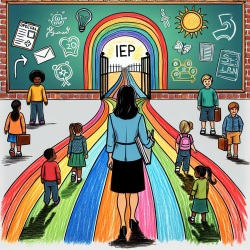The COVID-19 pandemic has profoundly impacted various sectors, with healthcare being one of the most affected. In particular, the field of psychology has seen significant changes in how training and patient care are delivered. The shift to virtual platforms has not only been a necessity but also an opportunity to explore new methodologies in training pre-doctoral psychology interns. This blog post delves into the insights gained from the research article "Psychology Internship Training Amidst COVID-19: Balancing Training Opportunities, Patient Care, and Risk of Exposure" and offers guidance on how practitioners can enhance their skills through these innovative approaches.
The Shift to Virtual Care
The emergence of COVID-19 necessitated a rapid transition from traditional in-person care to virtual platforms. This shift was particularly challenging for inpatient psychiatry units where patient acuity is high, and the therapeutic environment is crucial for treatment. Despite these challenges, the integration of virtual technology allowed for the continuation of essential services while minimizing exposure risks.
For psychology interns, this meant adapting to a hybrid model of training that combined both in-person and virtual experiences. The research highlights how this model was implemented during the pandemic's early stages and provides valuable insights into its effectiveness.
Key Insights from the Hybrid Model
- Virtual Rounds: Interns participated in rounds remotely, which presented challenges such as technological barriers and reduced interpersonal interactions. However, it also offered opportunities for novel contributions and access to real-time resources.
- Individual Psychotherapy: The use of iPads facilitated virtual therapy sessions. While this limited independent practice for interns initially, it allowed for co-therapy experiences with supervisors, enhancing learning opportunities.
- Telesupervision: Supervision sessions shifted online, requiring adjustments in communication strategies but ultimately fostering continued professional development.
Adapting to Future Challenges
The lessons learned from this transition are invaluable for future training programs. As we move forward, it is crucial to embrace flexibility and innovation in training methodologies. Practitioners can enhance their skills by:
- Engaging in Continuous Learning: Stay updated with the latest research and best practices in telemental health and telesupervision.
- Fostering Technological Competence: Develop proficiency in using digital tools and platforms to deliver effective care and supervision.
- Cultivating Adaptability: Be open to new approaches and willing to adjust strategies as needed to meet evolving demands.
Encouraging Further Research
The integration of virtual technology in psychology training is still an emerging field with much potential for growth. Practitioners are encouraged to contribute to this body of knowledge by conducting further research on effective strategies for virtual care and supervision.
To read the original research paper that inspired these insights, please follow this link: Psychology Internship Training Amidst COVID-19: Balancing Training Opportunities, Patient Care, and Risk of Exposure.
The journey toward integrating virtual technology into psychology training is ongoing. By embracing change and fostering innovation, we can ensure that future practitioners are well-equipped to navigate the complexities of mental health care in a post-pandemic world.










